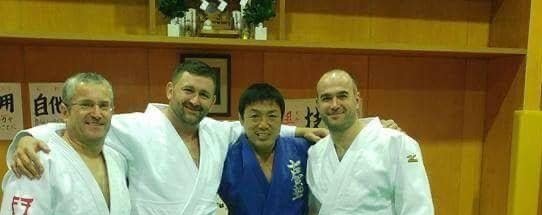
WHAT IS JUDO
Judo began in 1882 when Jigoro Kano developed the martial art by integrating techniques from traditional Japanese jujutsu. His goal was to create a sport that emphasised physical and mental discipline, promoting mutual welfare. Kano established the Kodokan school in Tokyo, which became the foundation for judo's global spread and evolution.
The purpose of judo
The purpose of judo extends beyond physical competition; it encompasses personal development, discipline, and mutual respect. Judo focuses on using an opponent's force against them, promoting balance and technique over brute strength. Practitioners learn to overcome challenges while fostering mental resilience and confidence. Judo also emphasises the importance of etiquette and respect for others, both on and off the mat. This martial art cultivates a sense of community among practitioners, encouraging teamwork and camaraderie. Ultimately, the purpose of judo lies in its ability to enhance physical fitness, character, and interpersonal relationships, instilling values that last a lifetime.
"Judo is 90% mental and 10% physical." - Jigoro Kano
JUDO 5 Qualities
1. Discipline
Discipline is the foundation of all martial arts. Judo requires strict adherence to the dojo etiquette and rules. A judoka must be disciplined to maintain focus, control their emotions, and follow the teachings of their instructors.
2. Respect
Respect is a central theme in judo. Judoka are expected to treat their opponents with respect, even during competition. This mutual respect fosters a fair and competitive environment, allowing judokas to focus on their skills and techniques.
3. Strength
Strength is an important aspect of judo, but it is not the primary focus. Judoka develop strength through proper technique and training, but the emphasis is placed on leverage and technique. Judoka must possess strength to execute throws and submissions effectively.
4. Flexibility
Flexibility is a valuable asset in judo. Judoka must be supple and agile to execute various throws and submissions effectively. Regular stretching and warm-up exercises help maintain flexibility and reduce the risk of injuries.
5. Mental Strength
Mental strength is equally important in judo. Judoka must be able to remain calm and focused under pressure. They must be able to adapt to different situations, remain calm during intense moments, and overcome challenges. Mental strength allows judokas to maintain composure and make the best decisions on the mat.